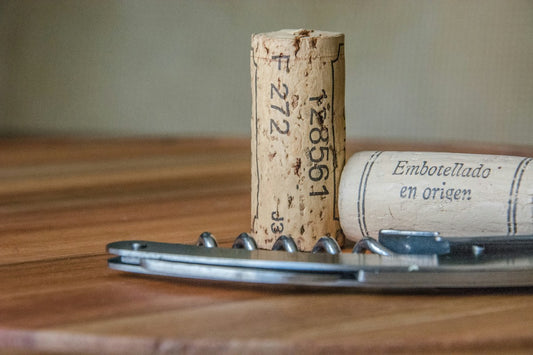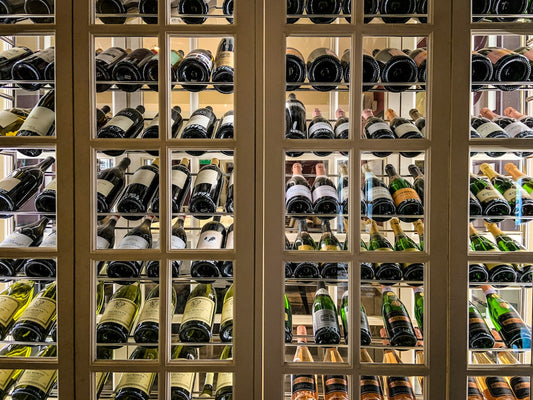Spaghetti Left Out Overnight – Safe To Eat Or Throw Away?
Norah Clark
One of the things I learnt to my cost is if you leave pasta out overnight, it is unsafe to eat due to the bacteria that grows within minutes of cooking.
While any bacteria is killed by cooking at high temperature, the spores are able to survive and start to multiply once the pasta reaches temperatures of 140 degrees F and may double in number within 20 minutes!
Cooked pasta is the ideal food for the growth of bacteria as it's full of carbohydrates, sugar, and other food ingredients that taste good.
Any food left out for over three hours at room temperature is likely to be spoiled. However, is there a difference between the time different kinds of pasta require before they become inedible? Is what kind of pasta you are using important?
Read on for an education in this little known food lesson.
How Bacteria Grows When Pasta is Left Out Overnight
Pasta is made up of carbohydrates, making the food delicious to both humans and bacteria.
Similar to cooked rice and many other carbohydrates, pasta can also be susceptible to bacterial growth, and the issue is so widespread that many eateries will not prepare pasta ahead of time, even if it means greater efficiency and improved service.
The reason is when pasta is heated to 140 degrees, it will begin to produce bacteria.
Many people mistakenly believe that because the pasta has been cooked with boiling water over a few minutes, it will be free of harmful bacteria.
Although harmful bacteria die between 160 to 212 degrees F, spores are covered by a hard shell that can withstand extreme temperatures for a prolonged time. They've evolved this way to withstand being killed by heat.
If the environment is conducive to growth, spores may expand exponentially. This occurs after food reaches the temperature of 140 degrees F.
Scientists have discovered that bacteria in cooling pasta can grow rapidly every 20 minutes, Even if you put the pasta in the fridge overnight, it would be inedible the following day.
The longest time you can keep pasta at room temperature is two hours. But only if you keep it from hot or any contaminated surfaces.
The Best Way to Store Pasta Safely
As a rule of thumb, pasta of any kind is best refrigerated after one hour after being cooked; it doesn't matter how cold it is in your kitchen.
Always store the pasta at 40 degrees F in a temperature-controlled environment (such as the fridge).
Even pasta with meat in it must be stored in a controlled temperature. I recommend not exceeding 2 to 3 hours before storing the food in the fridge to maintain the quality intact and ensure its safety.
Here are some guidelines to follow when cooking pasta:
- Make sure to cook the pasta just before guests arrive. I understand that it can be difficult to prepare food at the last minute. However, if the sauce is prepared, then prepare the pasta, mix it in. Place the lasagna to bake and serve it when it's cooked.
- Stuffed pasta must be prepared fresh and stored as soon as possible.
- If you're planning to make pasta in the morning to serve at night, transfer it to a food-safe container and place it in the refrigerator when cooked. Keep it on the highest shelf, away from the doors, so it cools quickly.
- Do not allow the pasta to remain in the refrigerator for longer than 72 hours (3 days). Make sure to eat it within 48 hours.
Can You Reheat Cooked Pasta?
The idea of reheating food to destroy bacteria is a myth according to health and science experts.
Do not reheat 4-5 hour-old pasta as bacteria will still be present.Prepare a fresh batch.
You can, however, reheat frozen pasta!
If the pasta has been stored correctly for up to two days, you could warm a portion by heating it in the microwave with some water or add a bit of oil and reheat it in a saucepan.
Do not repeatedly heat pasta; try to finish the meal once you've reheated it. Don't wait for the pasta to cool to room temperature before heating it.
The Signs That Tell Your Pasta is Spoiled
The most reliable way to know whether the pasta is suitable is to search for spoilage indicators. Certain signs can be absolute giveaways, while others are subtle.
These are the top signs of bacteria growth to look out for in your pasta:
The Pasta Stinks
Pasta shouldn't smell, except when using overpowering ingredients, like garlic.
Be sure to smell the pasta before reheating it. It should only release the scent of the ingredients.
If you notice even a hint of sulfur or a sour smell, it's time to throw out the entire portion.
There Is Mold Visible In The Pasta
This is a sure sign. If you spot any fungal growth, discoloration, or a fuzzy appearance on the top of your pasta, then it's time to throw it away and wash the container.
Some believe that food is edible even after removing the fuzzy portion, but this is a danger to your health.
Although the growth may be seen only on top, it will likely have spread, so throw it out.
There Is Slime in The Pasta
If you notice an obvious layer of slime on your food item, throw it away as soon as possible. The easiest way to spot it is to scoop it off with a fork before lifting it.
The pasta must have no sticky or slimy substance to be considered safe for consumption. You could even go an extra step by checking the food using your fingers, but wash your hands before eating.
The Pasta Has Been Reheated Already
Heating leftover pasta appears to be an everyday occurrence, so I urge caution.
When the pasta has previously been cooked, rather dump it instead of storing it eat at a later date.
Continual exposure to heat can alter the quality of the pasta and encourage the exponential growth of harmful bacteria and microbes.
Frequently Asked Questions
Can You Freeze Cooked Pasta?
You can, but al dente pasta is best.
If the pasta over-cooked, it can become mushy.
Store the sauce and pasta separately.
However, if it's been cooked and mixed, freezing it won't do much to improve its taste quality, taste, or consistency therefore, it's best to keep it refrigerated, but only for a few days.
Can You Defrost Pasta On The Counter?
No. Pasta shouldn't be left out to thaw. Always defrost using an oven, microwave, or pan.
Leaving frozen pasta at room temperature for a long time could result in loss of nutrients and contamination as bacteria can withstand freezing temperatures and then remain dormant until conditions are suitable for them to flourish.










